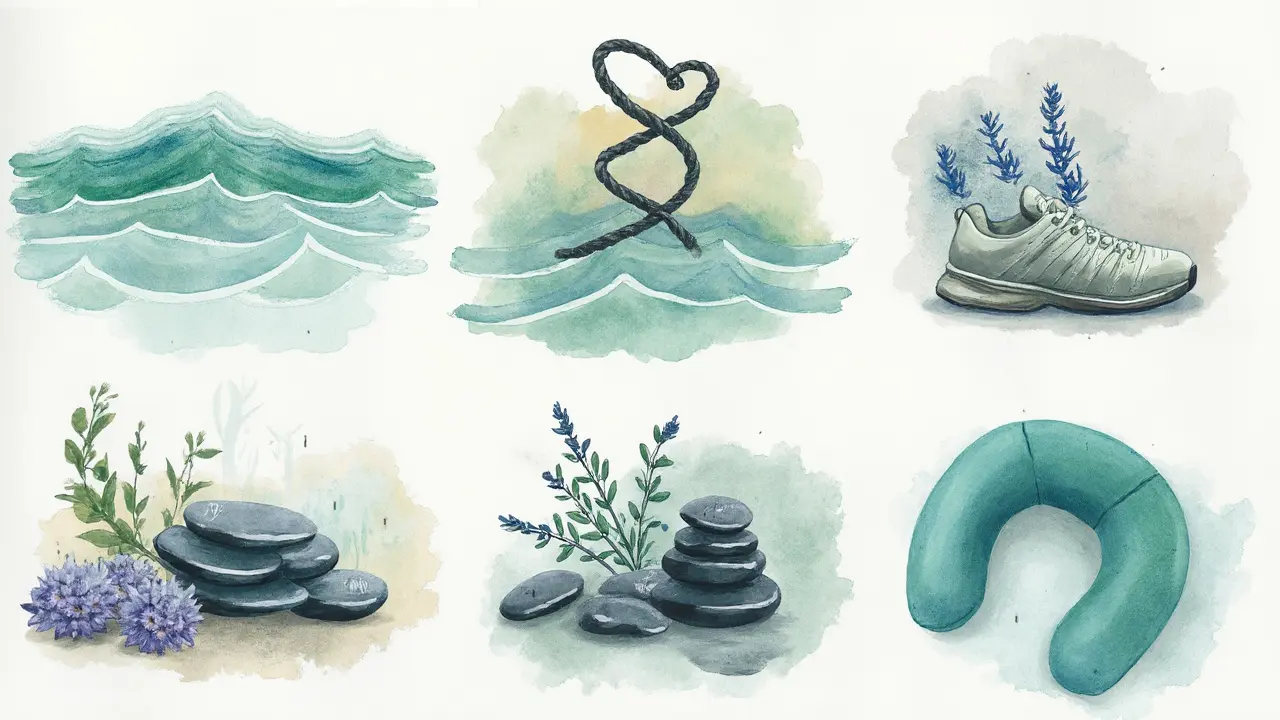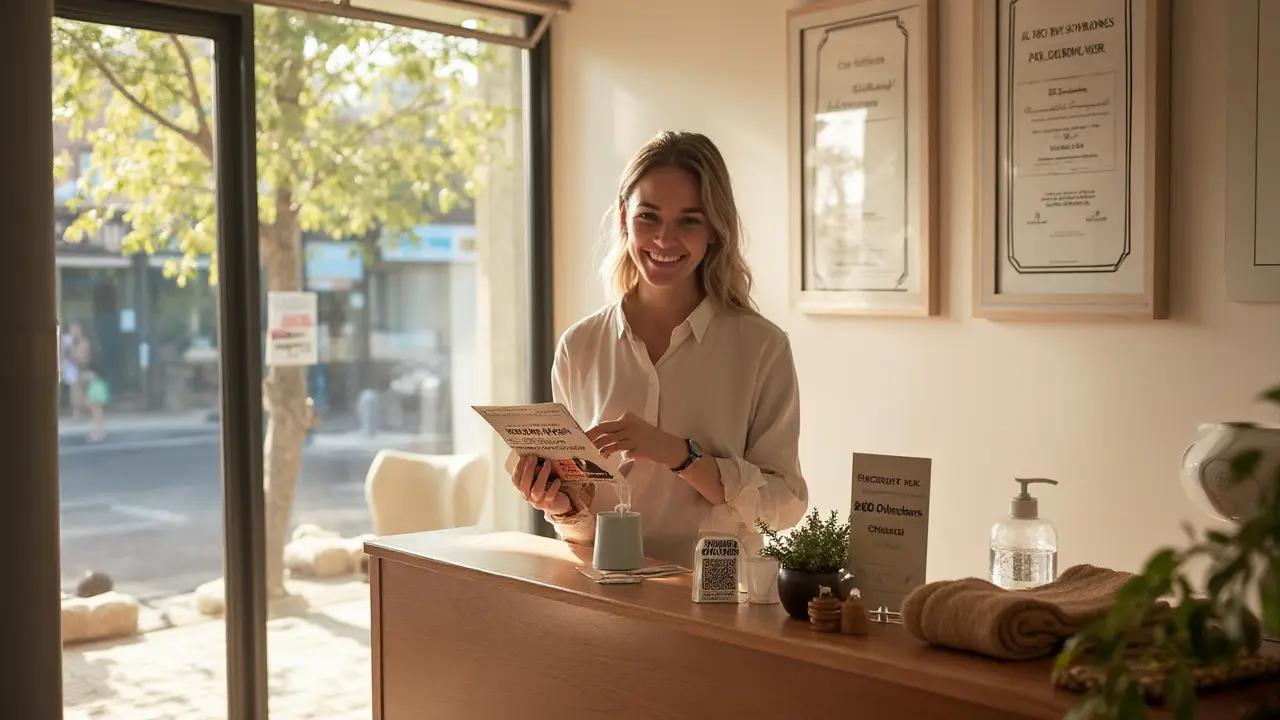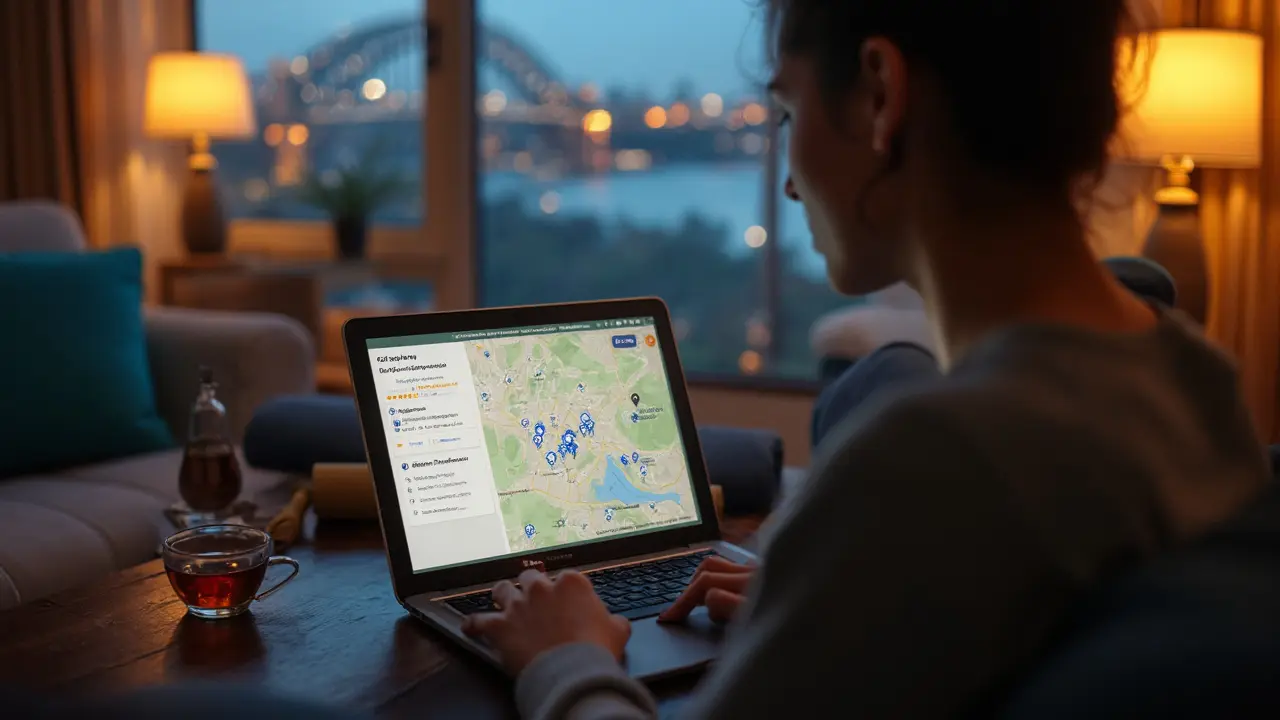You can feel it right now-tight shoulders, buzzing head, sleep that never quite sticks. For most of us in Sydney, stress shows up in the body first. A good massage can flip that switch faster than almost anything else. Here’s the straight talk: if you’ve never tried one, you’re likely leaving energy, focus, and better sleep on the table. I’ll show you exactly why it’s worth it, which massage to pick, how to find a trusted therapist near you, and what you’ll pay in 2025 in Sydney. No fluff. Just what works.
Key takeaways and the direct answer
TL;DR:
- Yes, you should try body massage Sydney. For most people, it lowers stress fast, eases muscle pain short-term, and improves sleep quality the same day.
- Pick the style to match your goal: Swedish/relaxation for stress, remedial/deep tissue for knots and recurring pain, sports for training, pregnancy massage if you’re expecting.
- What it costs in Sydney (2025): $90-$130 for 60 min remedial (often health-fund rebated), $140-$220 at spas, $110-$150 mobile. Packages save ~10-20%.
- Expect a quick chat, draping for privacy, adjustable pressure, and mild soreness at most. Give feedback during the session-your body, your rules.
- Safety first: delay massage if you have fever, a suspected clot, a new injury with swelling, or severe osteoporosis. Pregnancy is fine with trained therapists (often from second trimester).
Direct answer: Body massage is a must-try because it reliably reduces stress and muscle tension with low risk and immediate payoff. If you want to feel looser and sleep better tonight, book a relaxation or remedial session and tell the therapist your goal in one sentence. You’ll know within one visit if it’s for you.

The must-try guide to body massage in Sydney (2025)
What “body massage” really is
Massage is structured touch-pressing, kneading, and stretching soft tissues to ease tension and help your nervous system settle. In Sydney, you’ll see two broad buckets: relaxation massages (think calming, spa-like) and remedial/sports/deep tissue (aimed at problem areas with more targeted work). Different names, same goal: help you feel and function better.
Why bother: the evidence and the real-world payoff
I work at a desk. After a long-haul back into Sydney last year, my upper back felt like rebar. One 60-minute remedial session, and I slept like I hadn’t in weeks. That’s not just placebo. A 2015 Cochrane review on massage for low-back pain found small to moderate short-term relief versus no treatment. A Psychological Bulletin meta-analysis (Moyer et al.) reported meaningful reductions in state anxiety after a single session. And the 2017 American College of Physicians guideline lists massage as an option for acute and chronic low-back pain. Translation: you may not fix every issue, but you’ll likely feel better, fast.
Benefits you can actually feel
- Stress dial-down: slower breathing, calmer heart rate, and that heavy-limbs feeling you get after a good nap.
- Pain relief: temporarily eases knots, trigger points, and the “computer neck” ache from hunching.
- Better sleep: many people report deeper sleep the same night.
- Range of motion: looser hips and shoulders; handy if you lift, run, or surf.
- Recovery: less post-workout stiffness; pairs well with mobility work.
Types of body massage available in Sydney
Use this like a menu. Pick based on your goal, not the fanciest name.
- Swedish/Relaxation: Long, flowing strokes; light-medium pressure. Best for stress and sleep.
- Remedial Massage: Targeted work on problem areas; often health fund-rebated; common in clinics.
- Deep Tissue: Slower, deeper pressure into stubborn knots; tell your therapist when “good hurt” becomes “too much.”
- Sports Massage: Pre/post-event tune-ups; blends stretching and targeted pressure.
- Thai Massage: Clothes-on, mat-based, lots of stretching; great if you like mobility work.
- Hot Stone: Heated stones melt tension; very relaxing, less about fixing a specific issue.
- Lymphatic Drainage: Feather-light, rhythmic strokes to help fluid movement; used post-surgery or for swelling.
- Pregnancy Massage: Side-lying or special cushion; trained therapists keep you safe and comfy.
- Aromatherapy: Adds essential oils (lavender for calm, citrus for uplift); check allergies first.
- Reflexology/Shiatsu: Pressure points on feet or along energy lines; lighter on undressing, big on relaxation.
- Myofascial Release/Trigger Point: Slow holds and precise pressure to ease stubborn spots.
- Couples/Mobile/Chair: Share a session, get one at home, or do 20-minute chair massage at the office.
How to find excellent massage services in Sydney
Start local and filter hard. The aim is a therapist who does your goal all day, not sometimes.
- Search smart: Use suburb + goal. Examples: “remedial massage Surry Hills,” “pregnancy massage Parramatta,” “deep tissue Bondi,” “sports massage Manly,” “lymphatic drainage Chatswood.”
- Check credentials: Look for memberships like Massage & Myotherapy Australia (MMA), Australian Natural Therapists Association (ANTA), or ATMS. Remedial therapists usually list a provider number for health funds.
- Scan reviews for signal: You’re looking for comments about your exact issue: tension headaches, runners’ calves, pregnancy comfort, postural pain.
- Message them: One sentence: “I have desk-shoulder and tension headaches; is 60 minutes enough, or should we do 90?” Their answer tells you a lot about fit.
- Location and vibe: Clinics near the CBD, Newtown, Surry Hills, and the North Shore book up fast after work. If you hate street noise, pick inside a wellness center; if you prefer home, go mobile.
- Health fund rebates: If you have Extras cover, choose remedial with HICAPS to claim on the spot. Ask your fund about limits per year.
What to expect during a session
- Before: Quick chat about your goals, injuries, pressure preference, and areas to skip. Tell them if you bruise easily or get migraines.
- Privacy: You undress to your comfort level. You’re draped the whole time; only the area being worked on is uncovered.
- During: The therapist checks pressure. Speak up-“a bit lighter” or “can you stay on my left shoulder.” Your body guides the session.
- After: Drink some water, enjoy the floaty feeling, expect slight soreness for a day after deeper work. Gentle movement helps.
Pricing and booking in Sydney (2025)
- Clinics (remedial): 60 min $90-$130; 90 min $130-$180. Often eligible for health-fund rebates.
- Day spas/hotel spas: 60 min $140-$220; 90 min $200-$300+ depending on facilities.
- Mobile therapists: 60 min $110-$150; add a travel fee outside central areas.
- Extras: Hot stones/aroma usually +$10-$30. Packages can save 10-20%.
- Booking tips: After-work slots go first. Midday weekdays are easiest. Ask about cancellation windows (24-48 hours is common).
- Tipping in Australia: Optional. If you do, keep it simple-$10-$20 for standout service. Staff won’t expect it.
Safety tips (read this, especially if you’re new)
- Skip massage if you have fever, a skin infection, an active rash at the site, or a suspected blood clot. Get medical advice first.
- Go gentle if you’re on blood thinners or bruise easily. Avoid deep pressure over varicose veins or bony spots.
- Recent injury with swelling? See a GP or physio first. Massage helps recovery later, not in the inflamed phase.
- Pregnancy: choose therapists trained in prenatal massage; many prefer second trimester onward.
- Cancer care, recent surgery, or complex conditions: coordinate with your medical team. Oncology massage is a specialty.
- Numbness, weakness, severe or unexplained pain: book a GP/physio before massage.
Quick note from real life: I once booked a 90-minute deep-tissue after a hard gym week. Felt amazing, then woke up tight the next day. The fix? A 15-minute walk and a warm shower. Mild soreness after deeper work is normal; sharp pain is not-tell the therapist straight away if anything feels wrong.
And if you’re wondering, yes, I’ve booked surprise massages for my wife Marissa on birthdays. She prefers hot stone and will always choose a spa with a quiet lounge over anything flashy. You find what works for you.

Tools: comparisons, checklists, FAQs, and next steps
Massage vs physiotherapy in Sydney: which one when?
| Factor | Massage | Physiotherapy |
|---|---|---|
| Main goal | Reduce stress, ease muscle tension, improve sleep, assist recovery | Assess/rehab injuries, address movement dysfunction, prescribe exercises |
| Best for | Knots, desk-neck, general tightness, mild overuse aches | Acute injuries, persistent pain with weakness/numbness, post-op rehab |
| Qualifications | Remedial therapists (Dip. Remedial Massage) often association-accredited | APRAH-registered physios (AHPRA), degree qualified |
| Health fund | Often covered under Extras for remedial massage | Often covered, sometimes with GP referral or care plan |
| Price (60 min) | $90-$220 depending on clinic vs spa | $100-$180 (often 30-45 min sessions) |
| When to choose | Stress, tightness, maintenance, adjunct to training | New injury, nerve signs, recurring pain that limits function |
Rule of thumb: If you want to feel good and move easier today, book massage. If you need a diagnosis and a plan to fix something that keeps coming back, see a physio. Many people use both.
Quick checklist: choosing the right massage therapist
- Goal first: write one sentence (e.g., “sleep better and stop neck headaches”).
- Pick the style: relaxation (stress) or remedial/deep tissue (problem areas).
- Credentials: association membership, provider numbers for rebates if needed.
- Experience: look for your issue mentioned in bios or reviews.
- Pressure communication: they ask and adjust; you feel heard.
- Hygiene and vibe: clean room, fresh linens, quiet space.
- Logistics: location, parking or train access, appointment times that fit your life.
FAQ: your questions answered
- How often should I get a massage? For stress, every 2-4 weeks keeps things in check. For a specific issue, weekly for 2-3 weeks, then taper.
- Will it hurt? Relaxation shouldn’t. Remedial can hit tender spots, but it should be a “good hurt” that eases as they work. Speak up if it’s sharp.
- Do I need to undress fully? No. Keep underwear on, or choose Thai/shiat su if you prefer clothes-on. You’re always draped.
- Should I shower first? If you’ve been sweating, yes. After the session, wait an hour if you want the oils to keep working.
- Is tipping expected in Australia? Not really. It’s appreciated for standout service but never required.
- Can I work out after? Keep it light for 24 hours after deep work. Easy walk or mobility is perfect.
- What if I fall asleep? That’s common. Your nervous system relaxing is the point.
- Are essential oils safe? Usually, but tell the therapist about allergies, asthma, or pregnancy. Fragrance-free is always an option.
- Why am I sore the next day? Micro-release and fluid shifts. It should be mild and gone in 24-48 hours. If not, tell your therapist; pressure may have been too much.
- Does massage help headaches? Tension headaches, often yes. Migraines are trickier-some people benefit, others need medical plans.
Next steps by scenario
- Desk worker with neck/shoulder pain: Book 60-min remedial, ask for extra time on upper traps, chest, neck. Add two 5-minute daily stretch breaks.
- Runner or gym-goer: Alternate sports and myofascial work every 2-3 weeks during training. Hydrate, light mobility after.
- New parent, sleep-deprived: Go 60-min relaxation, light-medium pressure. Ask for warm towels on the neck if available.
- Pregnant: Choose certified pregnancy massage, side-lying or proper pregnancy table. Mention any pelvic or back pain.
- Older adult, sensitive skin: Low pressure, skip hot stones if you’re heat-sensitive. Focus on comfort and circulation.
Troubleshooting
- Bruising after deep tissue: Back off pressure next time; try more time with slower techniques instead of force.
- Headache after: Drink water, take a gentle walk, avoid heavy lifting for 24 hours.
- No change after three sessions: Reassess goals, switch styles or therapist, or see a physio/GP for assessment.
- Too ticklish or tense: Ask for slower, firmer pressure, less gliding, more compressions.
- Allergic reaction to oil: Request hypoallergenic or fragrance-free oil next time.
Ready to test it without overthinking? Pick a time this week, note your top goal, and book a 60-minute session near your suburb. If the first try doesn’t click, change the style or therapist. When you hit the right combo, you’ll know-you’ll stand up from the table taller, breathe deeper, and sleep like a kid.





Roberto Lopez
September 5, 2025 AT 14:03Desk shoulders are the worst and this nails the practical stuff you actually do after the session to not undo the gains.
I usually book a remedial 60 and ask them to spend the first 10 minutes on upper traps and pecs, then the rest on my mid-back. Standing up after feels looser right away and I do a short walk and some shoulder rolls to keep things from seizing back up.
Don’t overthink the place - look for someone who treats your problem all day, not a spa that only does relaxation once in a while.
Gopal Ram
September 8, 2025 AT 14:03Totally true about the sleep fix, been there 😂
Also cheaper clinics with remedial rebates are legit, don’t automatically assume spa = better. A good therapist beats fancy towels every time.
Pro tip: ask for hypoallergenic oil if you sniffle easily, they’ll switch it without drama 🙂
Mitchel Geisel
September 11, 2025 AT 14:03Remedial massage is the real MVP for desk posture issues. The spa fluff is nice, but it won’t fix scapular control or tight pecs that pull your shoulders forward.
If someone wants functional change, pair a few targeted sessions with simple daily mobility moves and stop expecting one hour to rewrite years of slouching.
Praveen Lingareddy
September 14, 2025 AT 14:03Pointing out the safety bits because people skip that and then complain when things go sideways.
Blood thinners, lumps, unexplained numbness and fresh swelling are not time for deep tissue. See a GP first and save the massage until the acute phase settles.
Also, the term is "remedial" not "remedialty" - attention to language matters when you want professional help.
Emily S Hurricane
September 17, 2025 AT 14:03Good practical guide and I want to add a few things from clinical experience that help people get the most benefit safely.
First, explain your primary goal in one clear sentence to the therapist before the session so the focus is aligned and the consent is explicit. Say it out loud and then stop talking-this is not a negotiation, it’s a briefing.
Second, when therapists check pressure, use consistent language every time: "light," "medium," "firm," and then add a position reference like "firm on left trap" so they know exactly where to adjust. That single trick prevents awkward mid-session stops and helps the therapist track progress session-to-session.
Third, keep a short home note after your session: three lines maximum. Line one: what felt better immediately. Line two: what was still sore next day. Line three: one movement or stretch to do for three days. That tiny log accelerates results because it informs the next session.
Fourth, hydration is not optional after deeper work. Drink water in the two hours after a session to help clear metabolic byproducts and reduce next-day soreness. A gentle 10–15 minute walk does wonders too.
Fifth, if you bruise easily or take anticoagulants, explicitly write that on intake forms and reiterate it verbally; therapists will modify techniques and avoid aggressive direct pressure.
Sixth, for ongoing pain issues, combine massage with targeted strengthening and mobility. Massage eases the tissues so you can perform corrective exercises with better form; it rarely fixes biomechanics alone.
Seventh, for pregnant clients, insist on a therapist with prenatal certification and avoid prone positions after the first trimester. Side-lying with proper bolstering is the standard and keeps things safe and comfortable.
Eighth, expect variability: therapists have different approaches, so if the vibe or technique didn’t fit, try another therapist rather than dismissing massage wholesale. It’s like finding the right trainer - not all of them click.
Ninth, if you experience sharp pain during a session, stop immediately and describe it succinctly. Sharp is different from an intense dull release; sharp pain is a red flag and should end the technique in that area.
Tenth, track frequency to the goal: stress maintenance every 2–4 weeks, acute issues weekly for a short block, then taper. This gives tissues a chance to adapt instead of relying on constant passive fixes.
Finally, set realistic expectations: massage helps symptoms and function quickly but it is rarely a permanent standalone cure for complex conditions. Use it as a tool in a broader plan that includes movement, sleep, hydration, and occasional medical review when pain is persistent.
All that said, a properly set-up 60-minute remedial session done with these small strategies almost always gives people noticeable, helpful change by the end of the first visit.
ian haugh
September 20, 2025 AT 14:03Agree with the aftercare notes and the bit about booking smart around work hours.
In Sydney you’ll find good remedial therapists in smaller clinics across the inner suburbs and they often do HICAPS so claiming is seamless. Leave a 30 minute buffer after work if you want to avoid traffic stress after feeling relaxed.
Jessica Kennedy
September 23, 2025 AT 14:03Also add that some therapists will happily show you two or three stretches to keep things loose for a week, so ask for them to be shown right on the table before you get dressed.
That in-session teaching is worth more than an extra five minutes of pressure work for maintenance clients.
Dentist Melbourne
September 26, 2025 AT 14:03Professional standards are non-negotiable and anyone thinking otherwise is putting health at risk.
Always check qualifications and insurance, and avoid places offering deep tissue "for cheap" with no registration details visible. The short-term savings are not worth a chronic problem.
Regulated practitioners follow clear contraindications and referral pathways, and that protects both client and therapist.
Cherie Corbett
September 29, 2025 AT 14:03Booked one last week and slept like a log.
Grant Cousins
October 2, 2025 AT 14:03Good reminder to combine therapies when needed and to document responses to each session concisely.
Short logs and consistent language when describing pressure and outcomes improve continuity of care and lead to better results over time.